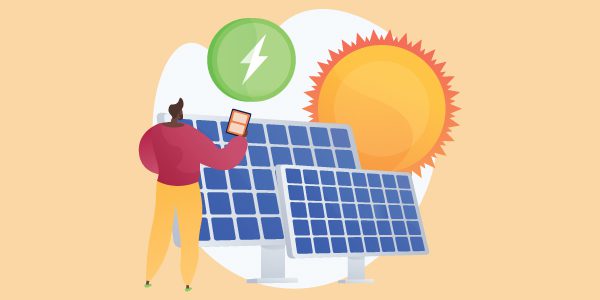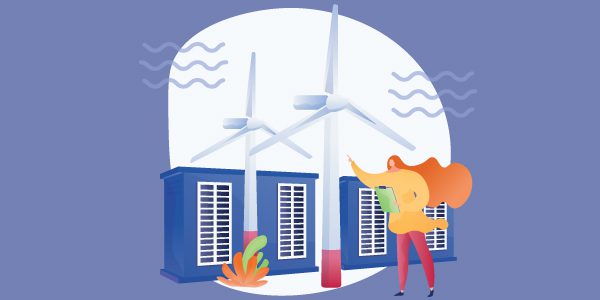In theory, solar power in Africa should be what sand is in the Middle East.
Based purely on the simple laws of supply and demand, Africa’s solar industry should be thriving considering the continent is one of the sunniest places on earth.
By all accounts, African countries should be investing in harnessing this power to ensure power stability. Unfortunately, this is not yet the case.
Currently, the Commercial and Industrial solar sectors sit nestled between the residential solar and the utility-scale projects markets on the solar power value chain.
This represents all the manufacturing, industrial, mining, commercial, and other business-related demand for solar power across the continent.
According to recent statistics this represents 75 % of all electrical power demanded across all industries in Sub Saharan Africa.
This means this sector is key to the growth and development of African economies, led by a massive uptick in the population and demand for technology.
The State Of Solar Providers In Africa
Current Commercial and Industrial providers sell solutions that consist of rooftop solar panels, mini-grid packages, battery storage kits, generators, gas, diesel, heavy fuel oil HFO, etc.
Unfortunately, despite the massive demand and potential for investment, there remains a gap between the demand and the supply required to satisfy this market and the generated capacity overall.
In addition, businesses often have to contend with erratic national grids and a distribution network that is sometimes out of commission for days at a time due to aging equipment and sabotage.
The State Of Africa’s Mining Sector
The mining sector in Africa has so far been the most reactive in getting some semblance of stability to their power needs.
This is because they have been utilising a strong mix between national power grids and their self-funded off-grid solutions for over half a decade now.
Many of the mines have processing plants on site which are next to or near their mines. They are either run by the company directly or managed by IPP’s on the companies behalf.
For instance, Resolute Mining built a large captive power solution at their Syama mine in Maliththat, including solar, thermal, fuel and battery storage. They produce about 40 MW of power, with another 20MW coming online in the next few years.
This is an example of the need to drive action for investments in renewable mining. These solutions can benefit both the mine and the surrounding communities that access the power generated.
The State Of Africa’s Commercial & Industrial Solar Market
The Commercial and industrial markets involve malls, office parks, agricultural processing facilities, hospitals, and hotels, which also need their capabilities to self-generate power.
These facilities typically use a mix of rooftop solar sets and battery storage mainly due to the lower daily consumption needs, typically between a few Kilowatts up to a few MWs.
They also do not have the space required to build bigger plants as most are located within heavily built-up areas in cities across Africa.
The State Of Africa’s Solar Equipment Market
Most of the original equipment manufacturers (OEM) that have moved aggressively into the Africa commercial and industrial equipment market are from Asia (many from China specifically).
This is simply because of their manufacturing capacity, price, and connections with the continent. They have also had an existing presence in Africa across the utility-scale sector, which has grown over the years despite being a slow-moving and bureaucratic segment.
The rest of the players come from the West, where they directly design and deploy their products on a project-by-project basis. However, South Africa is seeing a rise in these players opening physical offices and the demand for local skills across sales, business development, project management, and maintenance.
The State Of Africa’s Solar Job Market
Looking at the state of jobs and employment, the local workforce, especially those unable to enter the Utility and residential market, welcome this commercial and industrial segment growth.
There was little known about the solar space within Africa for a long time, which has no doubt changed as we see more universities and colleges offering qualifications in the technical and non-technical aspects of renewable energy and its supporting industries.
However, there is still a massive reliance on foreign skills throughout the continent. The importation of European and American skills has been beneficial.
Still, in the long run, Africa needs to educate, train, groom and deploy its own renewables skills base if the continent’s power needs are to be met.
In saying this, we see many East and West African postgraduates interested in wind, solar, hydro, and biogas degrees moving to South Africa.
They are taking advantage of their country’s investment in skill development and South African Universities’ futuristic courses at campuses such as the University of Stellenbosch and the University of Johannesburg.
Ultimately for countries in Sub-Saharan Africa to be industrialised and attain economic prosperity, there is a need for commercial and industrial consumers to access affordable and reliable power.
Therefore, it is imperative for African governments to (i) implement an operating and legal framework; and (ii) put favourable employment, operational and Tax policies and incentives that encourage private sector investments in captive solar solutions.












